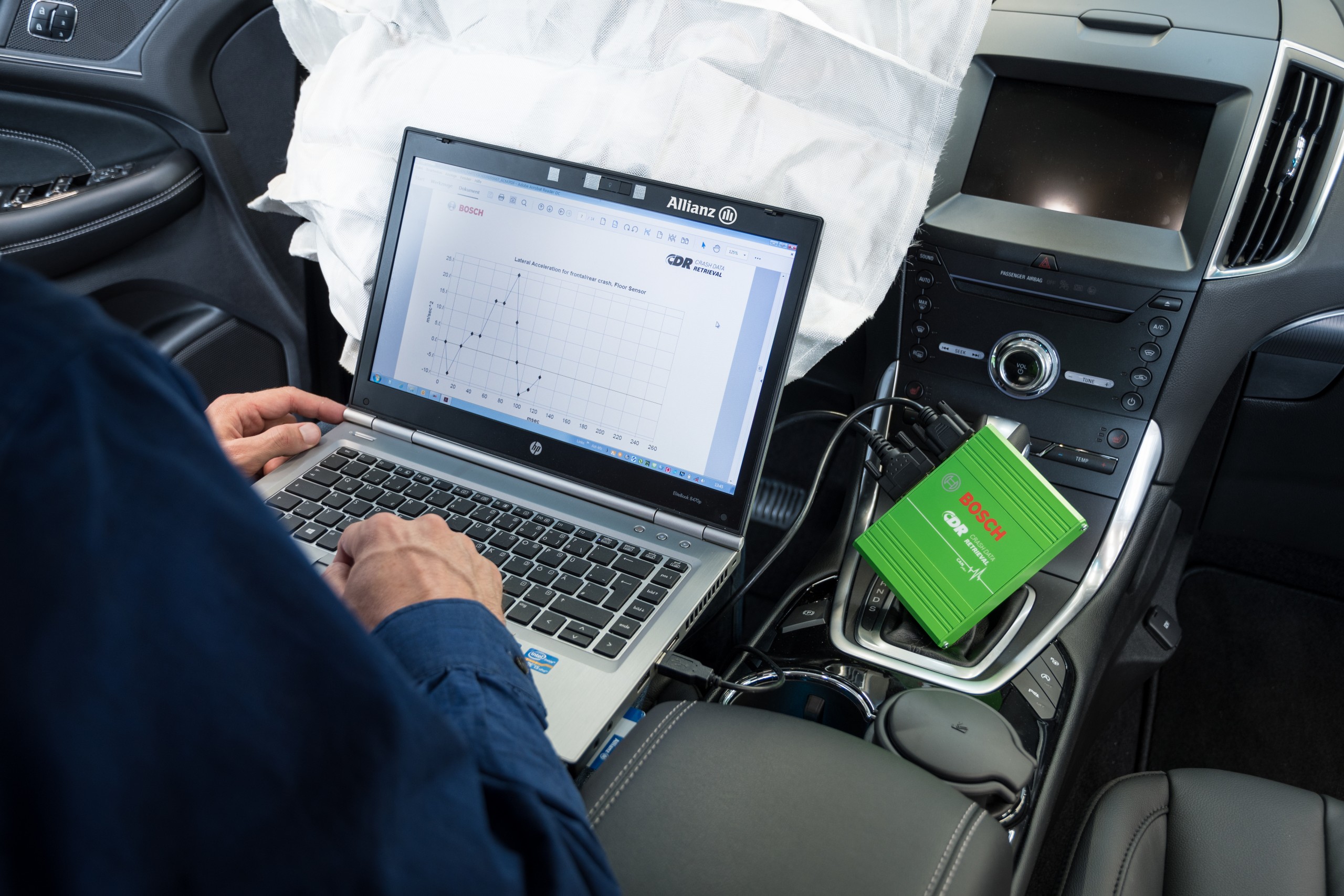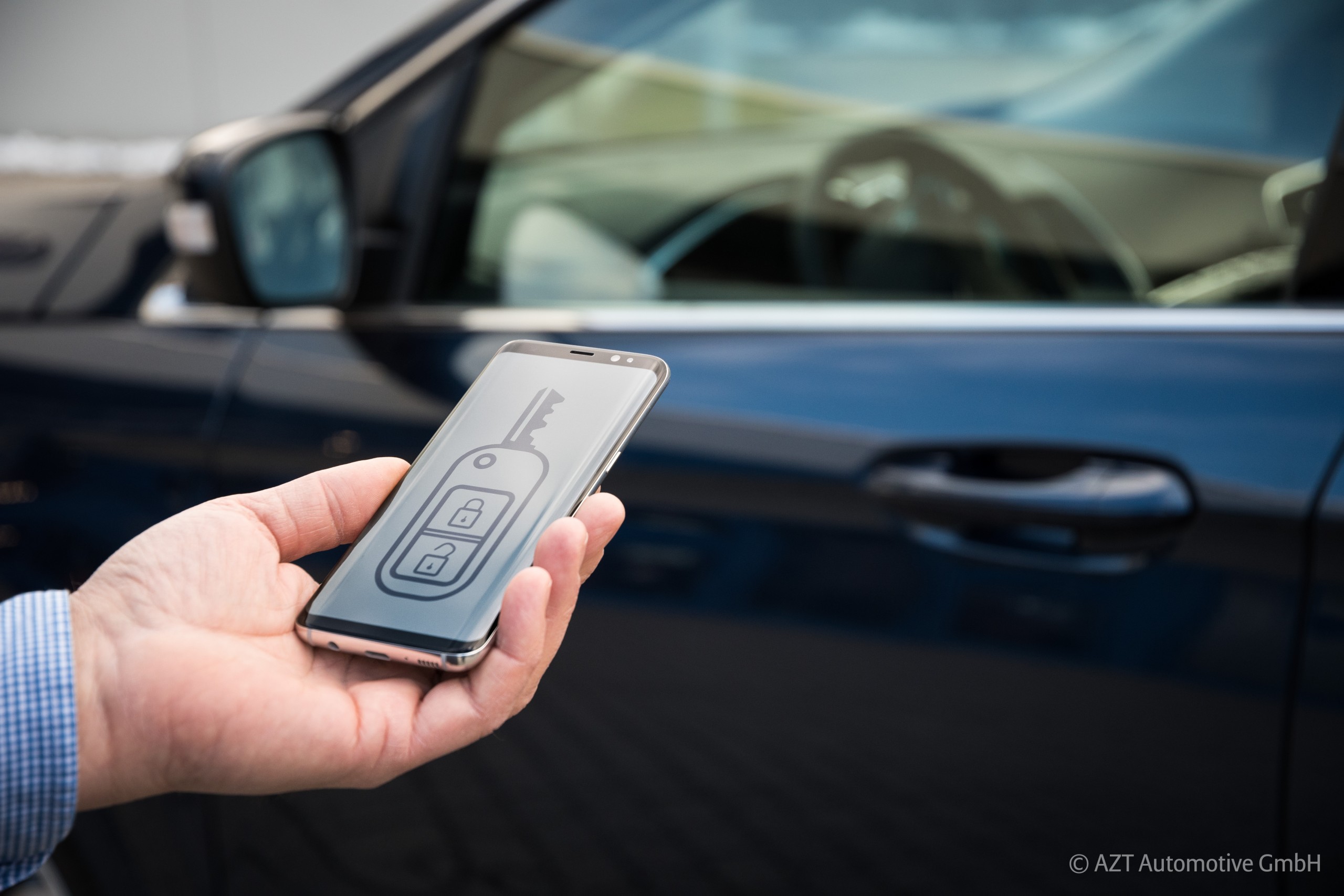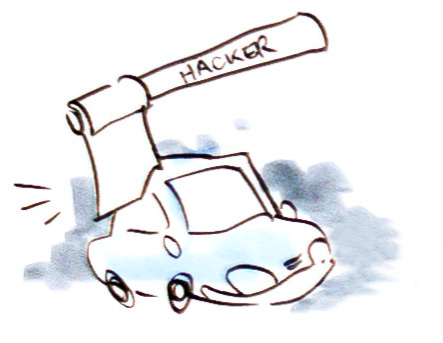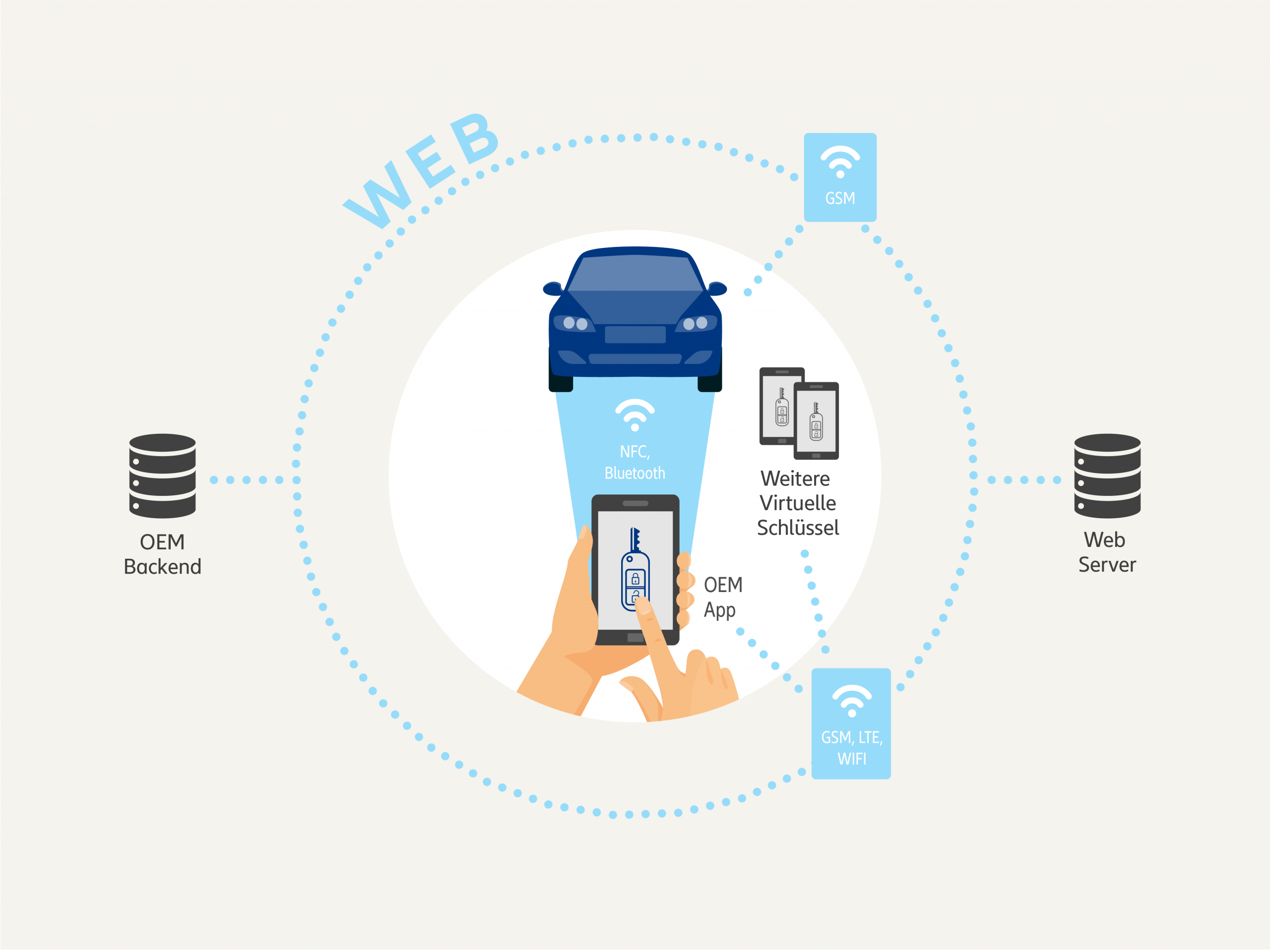Vehicle data & IT Security
Use of vehicle data for accident investigation

Modern vehicles are connected with their environment, compatible with individual apps, equipped with an increasing number of mandatory assistance systems that have a noticeable impact on driving and can be updated with software overnight. This justifiably raises the question of what actually happens to the data generated and stored in the vehicle and how it can be used in a value-adding, but also misuse-free, safe and fair way. However, the interests of vehicle users, the vehicle industry, insurance companies, service providers and research differ widely, making it difficult for legislators to find suitable regulations. The EU Data Act, which has already been adopted, aims to do just that, but is not yet specific enough for vehicle data.
Allianz is directly affected by this, as event data stored in the vehicle in the event of motor claims, such as accidents, breakdowns or theft, is required for claims settlement. A survey conducted by Allianz in 2023* showed that two thirds of all respondents agree to the use of data stored in the vehicle to clarify the fault for an accident and that every party involved must have the right to receive the necessary data. Incident data from the vehicle can not only be used to reconstruct courses of accidents, check the plausibility of claims and clarify liability issues, but also to speed up the entire claims process from notification to settlement, making it more digital and customer-friendly.
The entire claims management process can thus be optimized to meet the needs of customers if they are not only asked for their personal feedback after a claim has been completed, but if all the data collected on a claim can be used to improve the system and processes. With structured data in great detail, differentiated cost analyses in claims management are possible so that cost drivers and trends can be identified at an early stage. Allianz is therefore committed to ensuring that vehicle owners have full control over their data and can decide who may use the data from their vehicle for certain purposes and when. To ensure this, a regulated and secure marketplace for data exchange, transparency regarding data availability and fair prices for the provision of data by vehicle manufacturers are absolutely essential.
The Allianz Center for Technology contributes the technical basis for appropriate data parameters, event detection by vehicle systems, data security and non-discriminatory access to this data to the relevant committees, working groups and research projects. The Allianz´ position on data and victim protection and the safety of automated driving functions is a high priority and is taken into account in all discussions.
Specifically, AZT is working on the following topics:
- Remote or analog readout, analysis and interpretation of vehicle data
- Test fields for various readout tools for error memory, event memory or the state of health of the high-voltage battery
- Contributing to the design of digital claims processes, e. g. for automated accident and claims reporting
- V2X communication for greater road safety
- Telematics applications for more specific and individualized risk assessment
The 11th Allianz Motorday 2023 dealt explicitly and not for the first time with the topic of vehicle data and Allianz regularly presents its positions to the press.
You can find more details under the following links:
- Allianz Position Paper on Accident Data from Connected and Automated Vehicles
- 7th Allianz Motorday press release (in german language only)
- poster of the AHEAD working group as PDF (in german language only)
- Allianz survey: High approval for data use for accident investigation | Allianz (in german language only)
- Vehicle data can become a turbo for the European digital economy | Allianz (in german language only)
* Representative online survey by Allianz of 5200 drivers in 2023 in Germany (N=1200), Italy, France, Great Britain and Spain (N=1000 each) by the Allianz market research institute DrivenBy GmbH, the Allianz Center for Technology (AZT) and the market research company Ipsos. All results can be found in a 35-page report in German and English, which we will be happy to send you in electronic form.
Networks and IT security
In the course of digitalization, the global networking of systems and functions and the assessment of the risks this poses are increasingly coming to the fore - and this applies to the automotive industry as well. The new forms of technology in vehicles do not have to only function smoothly without any technical glitches, but they also have to be evaluated in terms of IT security. This gives rise to completely new challenges such as the forensic evidence of risks which arise through attacks and manipulation and may make the interfaces to the outside world insecure.
In this context, AZT is currently taking an in-depth look at two questions in particular:

1. Analysis and risk assessment of newly networked functions, such as virtual vehicle keys.
AZT has analyzed the potential ecosystem "Virtual Vehicle Keys", addressed the existing and new potential risks and attack vectors, and formulated the requirements with regards to virtual vehicle keys.
The requirements are to serve as guidelines for the handling of networked and security-critical functions in a loss event from the insurer's perspective, and, at the same time, to assist the automotive manufacturers with the technical design of the system and its protection against misuse.

2. IT security in networked vehicles
Attacks on the wiring system of a networked vehicle may jeopardize the comfort, property and safety of the passengers, as well as threaten economic interests.
Within the scope of a long-term, interdisciplinary cooperation project with the private research institution InS³ headed by Prof. Dr. Rudolf G. Hackenberg, professor at Ostbayerische Technische Hochschule (OTH) in Regensburg, these digital risks are examined, and threats as well as attack methods analyzed in terms of IT security.

Ecosystem Virtual Vehicle Key